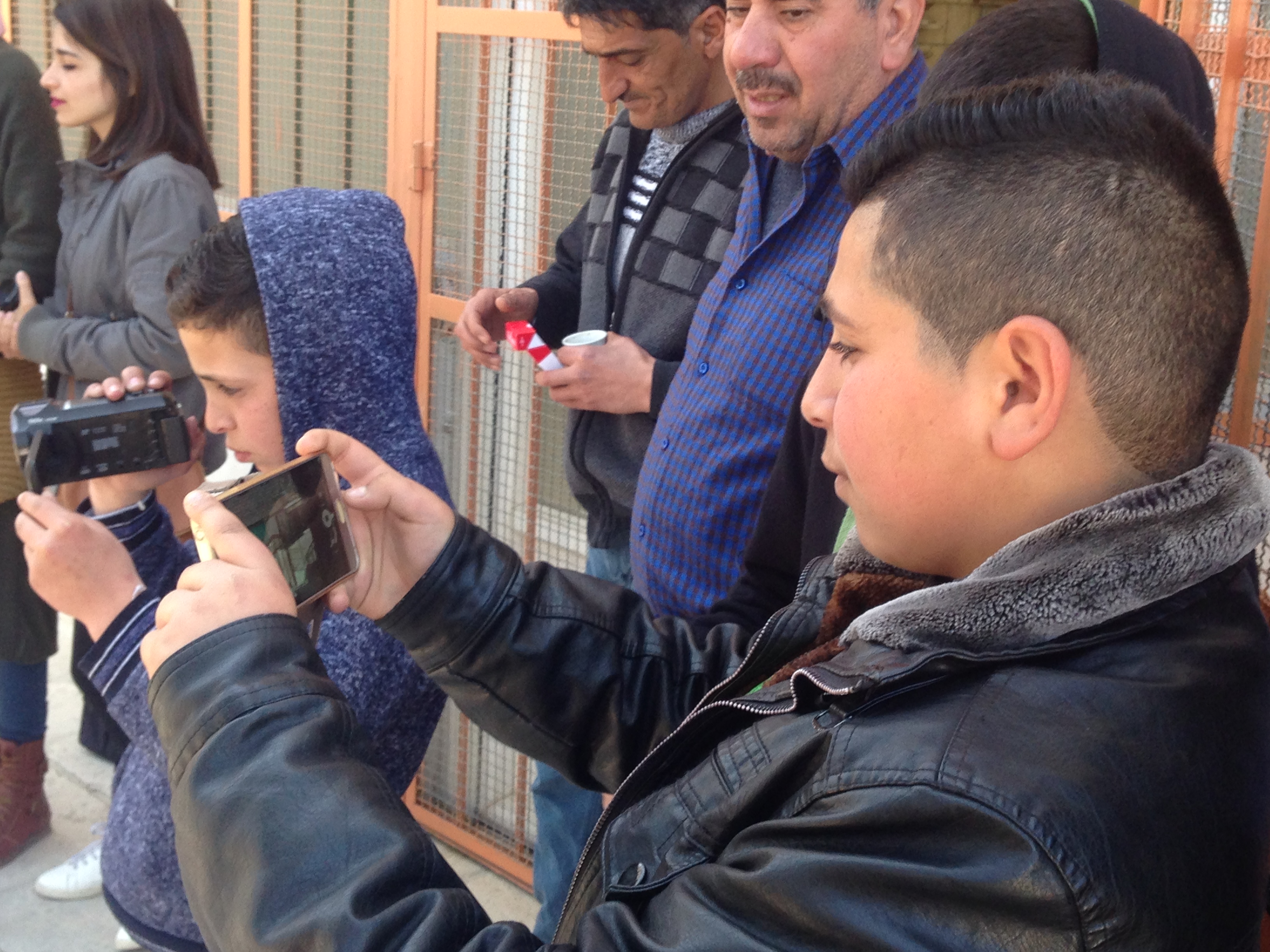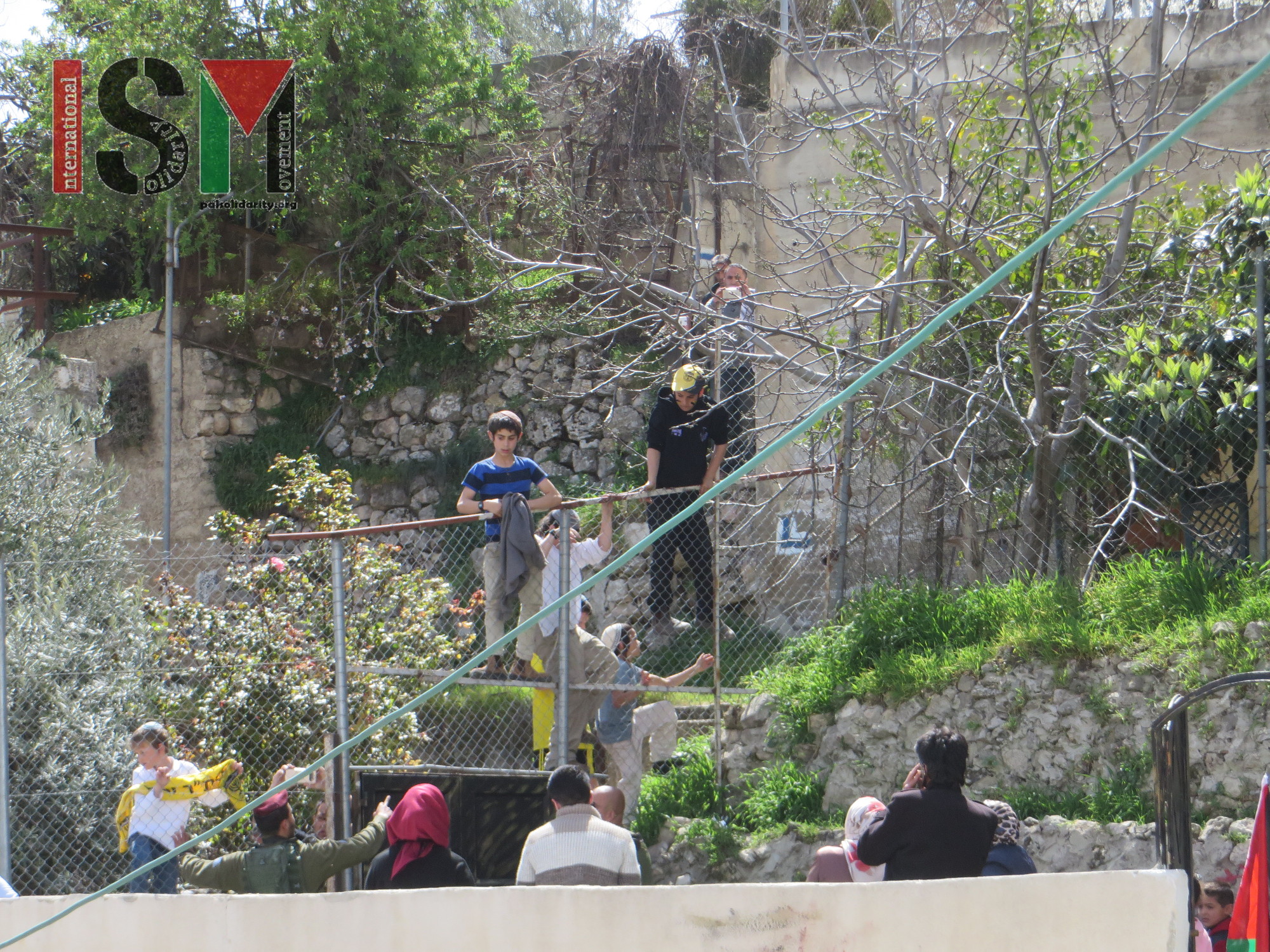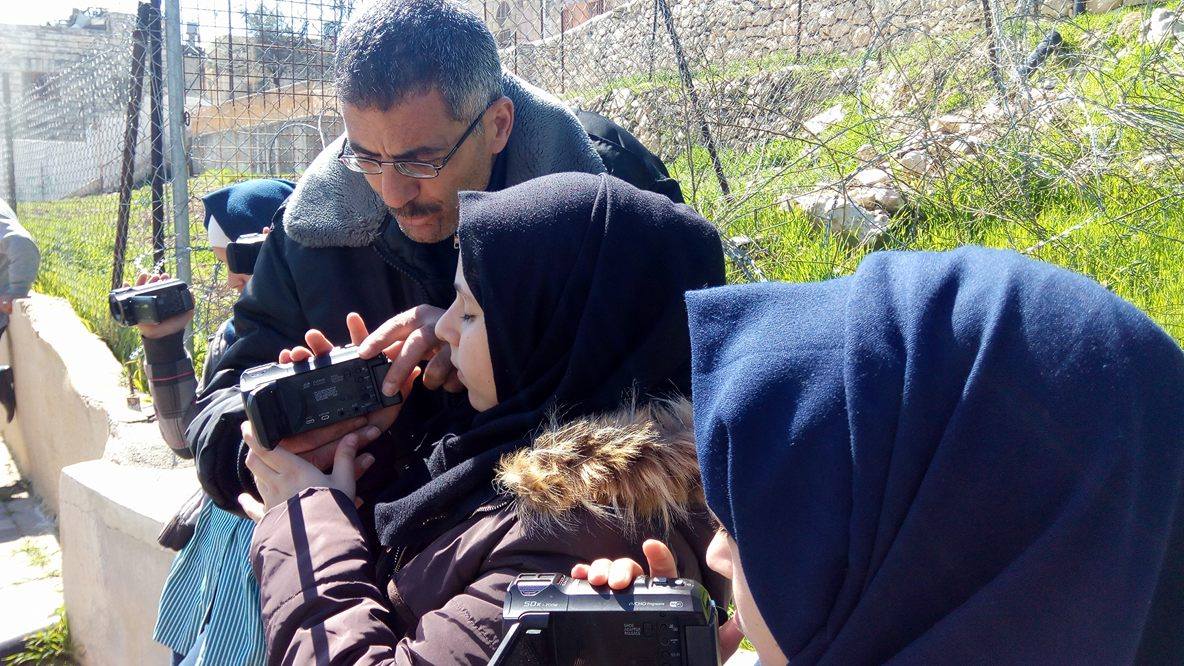Category: Hebron
-
More young camera activists trained in Hebron
15th March 2017 | International Solidarity Movement, al-Khalil team | Hebron, occupied Palestine Today five young students from Ibrahimi boys’ school took training in camera skills in H2, the Israeli controlled part of the city of Hebron. Training consisted of camera skills, for video, stills and phone-camera; as well as the human rights and legal…
-
Curfew, harassment and break-in for Shuhada Street as settlers celebrate Purim
14th March 2017 | International Solidarity Movement, al-Khalil team | Hebron, occupied Palestine Israeli settlers on 12th March 2017 harassed and threatened Palestinians and attempted to break into Shuhada Street kindergarten, as the Tel Rumeida neighborhood in occupied al-Khalil (Hebron) was put under curfew for Palestinians so that settlers could celebrate Purim undisturbed by Palestinian presence.…
-
A new generation learns to ‘shoot’ the occupation
Human Rights Defenders have started a new project to protect the human rights of the children who have to live and study in the middle of the occupation and ghettoisation which is the centre of Hebron. Last Sunday, 5th March, the first of four schools, Qurtuba School, had training in how to use video cameras…



